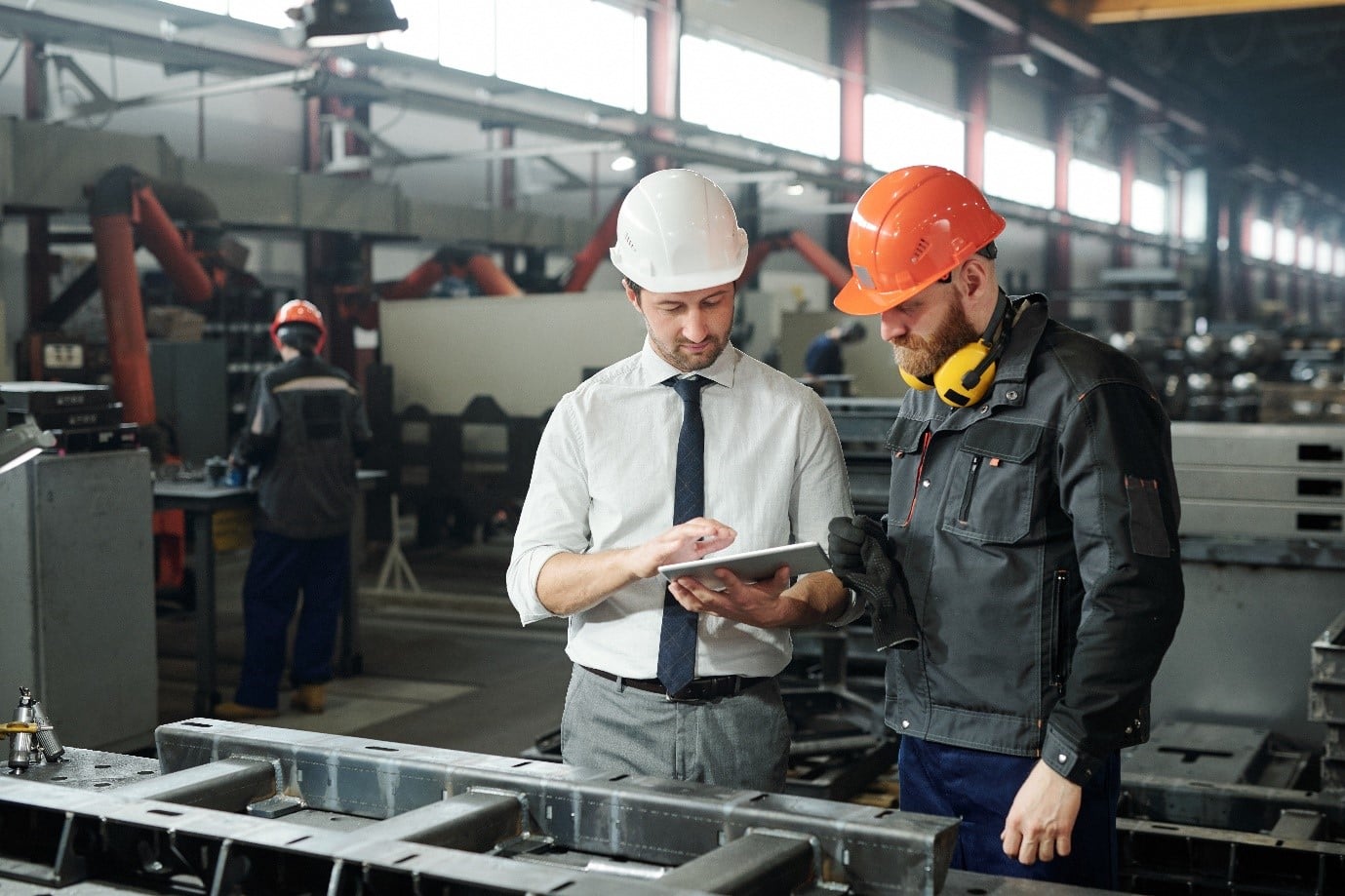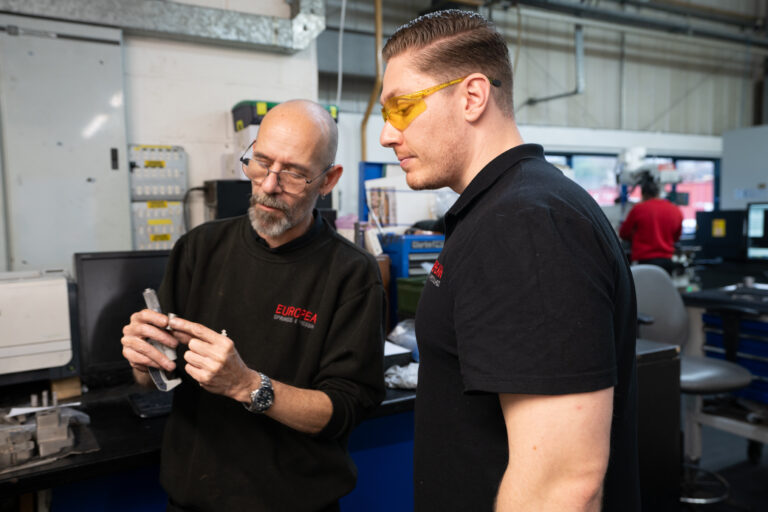Manufacturing has suffered heavily due to COVID-19. Warehouses had their operations shut down for months, and government guidelines demanding social distancing and other measures means that some companies will be working at a reduced capacity and are playing catch up to make a dent in their losses.
Fortunately, the UK government has offered to boost the country’s manufacturing capacity with an investment of £300 million in joint government and industry funding. It will be used to fuel innovation in areas like robotics, AI and augmented reality.
The investment will provide a crucial financial boost to the aerospace, automotive, pharmaceuticals and food and beverage sectors across the UK as the country builds up following the impact of the Coronavirus pandemic.
The investment comes through the Manufacturing Made Smarter competition, which was a project aimed to help UK manufacturing supply chains develop technologies that make operations more efficient, productive, flexible and resilient. Firms of all sizes could apply for up to 70% of the funds they need for their research projects. The government will invest £147 million, with the rest of the £300 million backed by funding from the industry, to support businesses using new technology in manufacturing.

£50 million of the funding is being given to 14 manufacturing projects that involve a mix of SMEs, larger businesses and universities, whose applications for the Manufacturing Made Smarter competition were successful.
One such successful project is Digital Designer Robot, which offers machine-to-person digital assistance. The idea is that when a company needs a bespoke product, they can use a digital robot to help with the design, which can then be quickly uploaded to the supplier’s website, allowing for a quick turnaround of sampling, and a prototype is manufactured.
Another successful project is the Smart Connected Shop Floor. Using real-time data integration, this digital technology includes augmented reality headsets for engineers so businesses can guide them through repairs, and the use of smart devices to exchange information between computer systems.
The Digital Sandwich is a project that involves digitalising the food supply chain, helping a sandwich supplier serve the NHS during the Coronavirus pandemic. They are creating software where food and drinks companies can connect and share data. This information exchange will be used to boost productivity, improve cash flow and reduce waste within the supply chain.
Business Secretary Alok Sharma confirmed the funding for these projects at London Tech Week; he said that: “Increasing productivity is vital for any business, and having the right new technologies in place can help manufacturers make better products to compete and thrive.”
How Can Technologies Help Manufacturing?
COVID-19 has caused many difficult challenges across all industries, especially manufacturing. Manufacturers must invest in the right kind of technologies that provide unique, digital solutions to supply problems so they can continue to survive during these uncertain times.
The pandemic has caused disruptions to normal operations thanks to lockdowns and travel restrictions. Workers need safe access to their workplace where they can keep a safe distance from others while coping with a reduced workforce. Fortunately, technologies can be used to optimise manufacturing processes, helping businesses to not only survive but thrive during these uncertain times.
- Planning
Planning is a crucial part of manufacturing and supply chain operations. This is often handled by the people in charge, possibly by separate teams. But the pandemic has forced businesses to improve their company visibility so they can make cost-savvy decisions, and the impact of good planning is more evident.
This is where autonomous planning can come into play. Artificial intelligence and machine learning algorithms can use both internal and external datasets from suppliers, customers and broader economic indicators to incorporate variables and help companies respond to changing dynamics. This technology can optimise the planning processes across the entire chain, providing end-to-end visibility and allowing decisions to be made based on strategic modelling that produces cost-effective results.
- Manufacturing goods
The manufacturing of goods has been put under strain thanks to COVID-19. Companies now need to cope with social distancing measures, a staggered workforce and restricted movement of migrant labour between countries. Fortunately, digital technologies can help with employee safety, operational efficiency and productivity.
Digital technology helps with remote working and collaboration, reducing the footfall in physical warehouse locations. Location tracking mobile apps and wearable technologies can also help workers maintain social distancing as they start to go back to work.
Many processes can be automated through the use of robotics, helping workers cope with a reduction in their workforce and reducing contact between employees. These robotic workers can supplement labour capacity, taking over some of the simpler, or dangerous, tasks and freeing up human workers to do the more intricate work that AI is not capable of performing.
Aside from the actual manufacturing processes, digital technologies can also help with quality assurance. Machine-vision algorithms can perform quality inspections using predictive algorithms, relieving human employees of this role while increasing the precision of quality checks.
- Delivery
Delivering manufactured goods is a complex process that often involves third parties. The pandemic has reduced transportation and added new challenges such as contactless delivery and transport restrictions. That’s why digital solutions can be used to help increase visibility and improve deliveries across the sector.
From loading at the collection point to unloading at the delivery point, digital fleet management, route optimisation and carrier analytics can optimise operation, management and resource allocation. Telematics and on-board sensors, combined with machine learning, can help improve driver behaviour, increase fuel efficiency, reduce maintenance costs and minimise asset downtime.
Warehouses can be fitted with automated storage and retrieval systems, smart shelves, and picking robots and drones to help optimise delivery processes. Augmented-reality tools can also be used to make picking multiple orders more manageable and more effective, and the use of exoskeletons can help reduce the possibility of injury to workers lifting heavy materials.

COVID-19 has created many challenges for manufacturing, but for those that invest the right kind of technologies, they can improve their processes, streamline operations and boost their cash flow. At European Springs, we are expert spring manufacturers; if you’d like to learn more about our services, contact us today.







